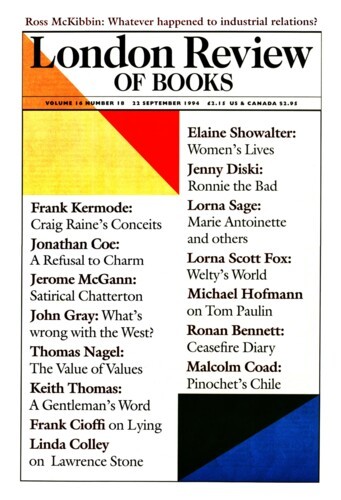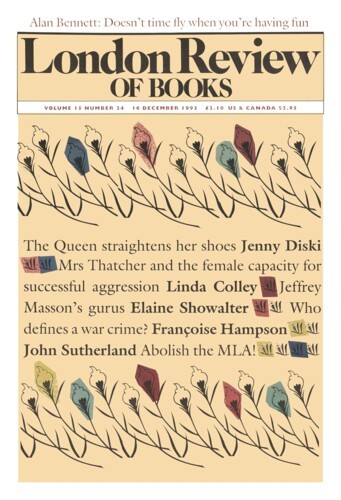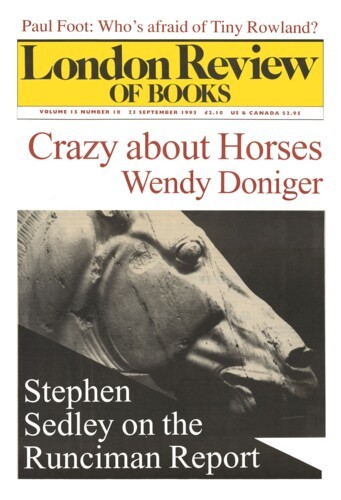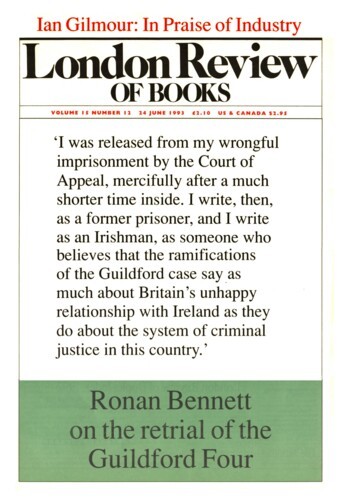Diary: The IRA Ceasefire
Ronan Bennett, 22 September 1994
I am listening to the radio, only half awake. Some hammy old actor is camping it up in one of those overblown plays about the ‘Troubles’. In tones of high theatricality he sets the sinister scene: the Falls Road, Belfast, just after midnight; one of the most dangerous corners in Europe if you happen to be unaccompanied and of the wrong religion. I assume it’s an adaptation of some Gerald Seymour novel and reach over to turn the radio off. Then I recognise the voice – it’s John Humphrys on Today. I concentrate. On the Falls, apparently, men with hard, cold eyes used to stare sullenly from behind the iron railings that surround the pubs and clubs, planning their next operation.’




